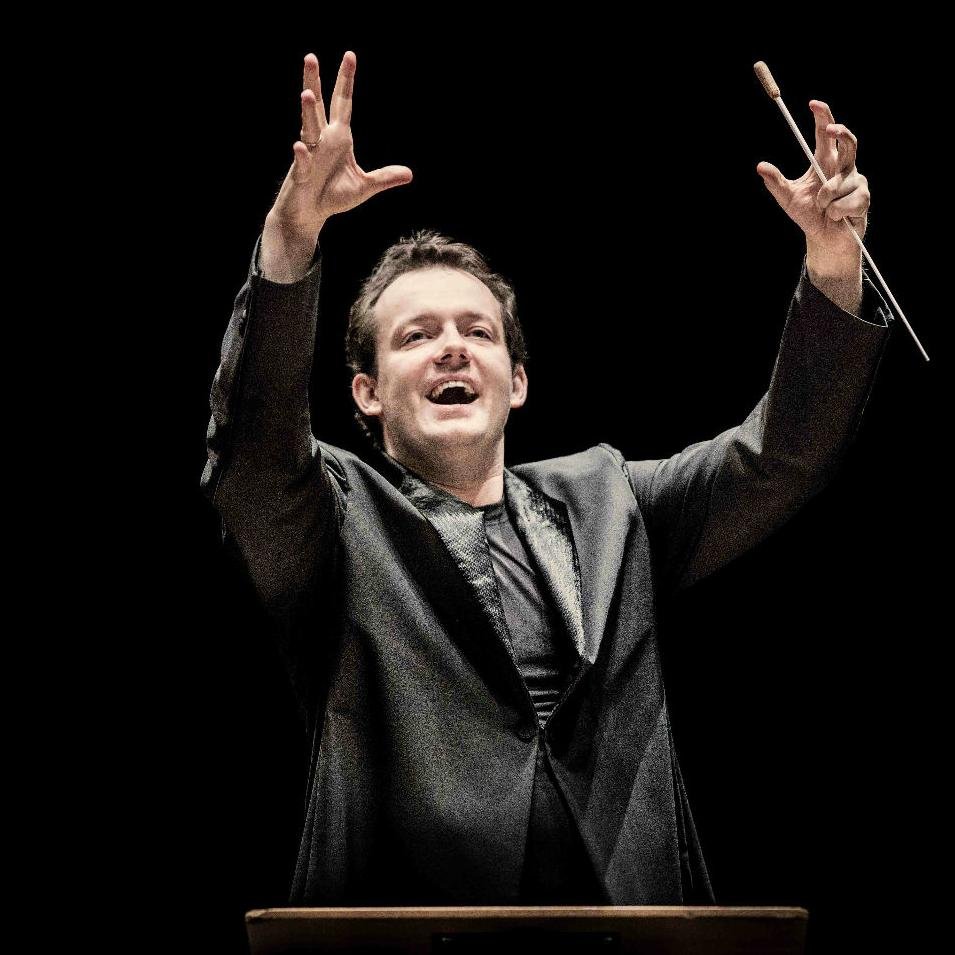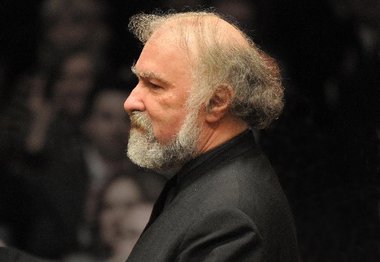Nelsons leads BSO in a mixed evening of Mozart
Mozart seemed to straddle two musical worlds. While many of his works reveal him to be the foremost Classical-era genius, others look ahead to brooding romanticism. The two minor-key piano concertos, No. 20 in D minor and No. 24 in C minor, for example, brim with a resonant emotionalism so integral to the coming nineteenth-century style.
But there may be no more powerful work than his Requiem. Left incomplete at the time of Mozart’s death, the piece, with its mysterious commissioning history and stirring, even terrifying portrayal of death, hits many of the marks that would come to define the Romantic styles of later composers.
Thursday night at Symphony Hall, Andris Nelsons led the Boston Symphony Orchestra in a searching and darkly lyrical account of the work. Strangel missing from the performance, though, was a palpable sense of drama.
Nelsons’ renditions of big works uncover the fine details of the score. He led Thursday’s performance with his characteristic scooping gestures, sudden crouches to encourage soft playing, and quick lunges to bring out the louder sections of the work.
But the orchestra, paired down to suit Mozart’s scoring, didn’t always follow his lead. Attacks in the “Domine Jesu” were sometimes tentative, and the strings didn’t quite capture the hellfire of the “Confutatis.” The soft passages, however, unfolded in lines of ringing beauty as Nelsons wove the voices and instruments into a soft tapestry of sound. Phrases throughout rose and fell like breathing.
The singers for this performance were consistently excellent. Bass Morris Robinson brought a deep, resonant voice to the “Tuba mirum,” and he sang with beaming tone in the “Benedictus.” Tenor Ben Johnson’s solo spotlight was brief, but he managed to bring an operatic lyricism to the “Mors stupebit et natura.” Mezzo-soprano Tamara Mumford sang her phrases in “Judex ergo cum sedebit” with rich chocolaty voice, and soprano Lucy Crowe floated a lovely line in “Lux Aeterna.”Together, the quartet sang with resplendent blend. Their passages in the “Recordare” were by turns serene and exuberant.
What the orchestra may have missed in power was remedied with the fine singing of the Tanglewood Festival Chorus. Prepared by James Bagwell, the singers brought radiant sound to the work’s many choruses. The towering harmonies of “Rex tremendae” sounded with conviction while the “Lacrimosa” glowed with a distant light as Nelsons crafted the phrases in flowing arcs of sound. The singers, too, found the crispness in the “Domine Jesu.”
Before intermission, Nelsons and the orchestra offered a svelte and nimble performance of Mozart’s Piano Concerto No. 24 in C minor.
The soloist was Radu Lupu, a living legend among pianists for his soft, graceful touch and singing tone. His approach to the concerto reveled in a soft elegance that finely matched the superb playing of the BSO winds, particularly in the first movement. Lupu played the third movement’s variations at a gently trotting tempo. Drama, here too, was understated, with Lupu’s left-hand figures supplying just the right touch of weight and depth. The cadenzas, the pianist’s own, were similarly searching in its bold chords and running figures.
Mozart’s slow movements offer some of the composer’s most affecting music, and here Lupu shaded his phrases with gentle rubato for an effect that was almost Schumannesque.
As with last week’s fine performance of Mozart’s other minor key concerto, Nelsons led an accompaniment of soft grace and sensitivity. Lupu and the conductor made a fine match for the work’s chamber-like passages. This was Mozart at its most delicate.
The program will be repeated 1:30 p.m. Friday and 8 p.m. Saturday at Symphony Hall. bso.org; 888-266-1200
Posted in Performances

